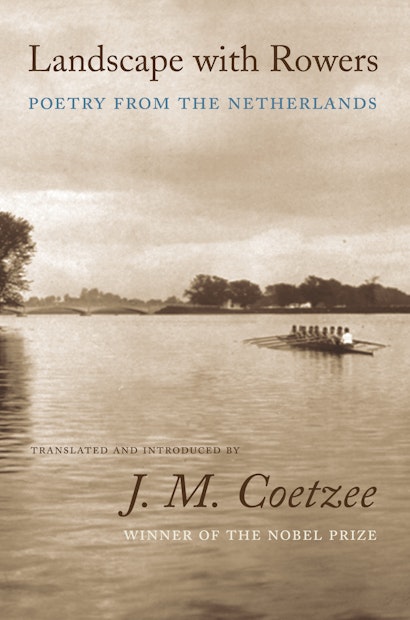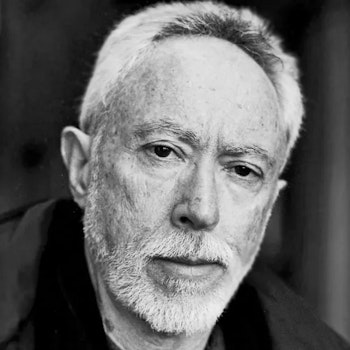Though the Netherlands has been the site of vigorous literary activity since at least the Beweging van Vijftig (Movement of the Fifties) poets, the status of Dutch as a “minor” language spoken by only twenty-two million people has kept its rich poetry more or less a secret. This volume—featuring J. M. Coetzee’s finely wrought English translations side-by-side with the originals—brings the work of six of the most important modern and contemporary Dutch poets to light.
Ranging in style from the rhetorical to the intensely lyrical, the work here includes examples of myth-influenced modernist verse, nature poetry, experimental poetry, poems conscious of themselves within a pan-European avant-garde, and Cees Nooteboom’s uncompromising reflections on the powers and limitations of art. In addition to Nooteboom, the poets represented are Gerrit Achterberg, Hugo Claus, Sybren Polet, Hans Faverey, and Rutger Kopland—a who’s who of contemporary Dutch poetry.
In Youth, Coetzee’s main character claims that “of all nations the Dutch are the dullest, the most antipoetic.” With these marvelous translations, the author proves his protagonist wrong.
Awards and Recognition
- J.M. Coetzee, Winner of the 2003 Nobel Prize in Literature
J. M. Coetzee received the Nobel Prize in Literature in 2003. His books include The Lives of Animals (Princeton), In the Heart of the Country, Waiting for the Barbarians, and the Booker Prize-winning novels Life and Times of Michael K and Disgrace. His most recent book is the novel Elizabeth Costello (2003).
"[Coetzee's] choices all have the capacity to pique poetry readers' interest in more by these striking, thoroughly European modernists. . . . [An] enjoyably challenging little sampler."—Booklist
"To lay bare something of the individuality of one poet's voice can be
difficult enough. For this book, J.M. Coetzee has translated six 20th-century poets from the Netherlands, rendering all of them with delicate virtuosity. Each poet comes across as having an arresting and distinctive voice, which is then allowed to resonate all the more effectively thanks to the translator's choice of poems of a sequential nature."—Alan Marsahll, Daily Telegraph
"Coetzee's own varied life—as a computer programmer with a doctorate in computer-generated language, as a polyglot 'post-structuralist linguist,' as a world-renowned novelist—rivals that of the most eclectic of the poets he's translated. Way back before the novels that earned him an unprecedented two Booker Prizes, however, he cherished his own hopes of becoming a poet. Clearly, with his faithful translation from the Dutch and his shrewd assessment of this little-known body of literature, Coetzee's earliest ambition is now yielding a surprising late harvest."—Cynthia Haven, San Francisco Chronicle
"Coetzee here demonstrates a sharp ear and deft hand with poems in a variety of voices. . . . [It] is a gift to come upon these translations from six poets definitely worth our attention."—Library Journal
"The book has been lovingly and beautifully produced. . . . I was struck by how much more starkly and conspicuously the effort to grapple with the horrific century just past comes through in the writings of smaller nations. . . . Mr. Coetzee's translations of these cool and astringent poems read well. . . . By relying on slant or partial rhymes, he often succeeds in conveying the music of the originals—no mean feat."—Eric Ormsby, New York Sun
"These poems are whispered in the back pew of some massive cathedral where Stevens and Stein are saying benedictions. But sitting in the back row isn't just an act of humility: back here you can have a little fun at the priest's expense. It is that combination of devout parishioner and irreverent jester that makes these poems breathe."—Dan Chiasson, Poetry
"In Coetzee's artful translations, these poems suggest the power of the half-known."—Robert Pinsky, Washington Post Book World


